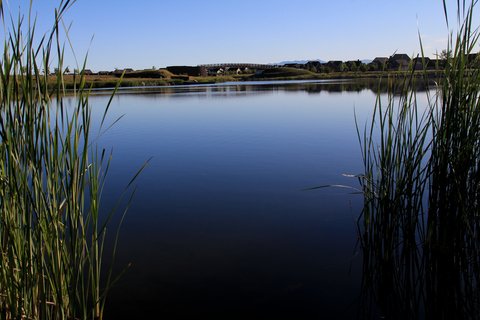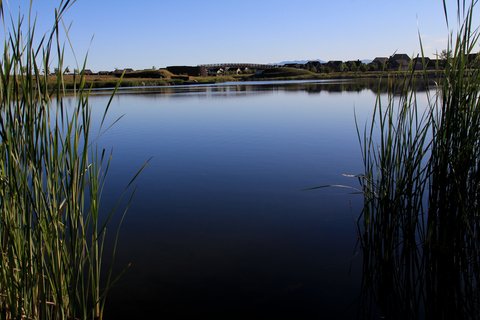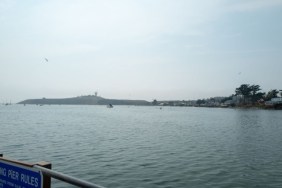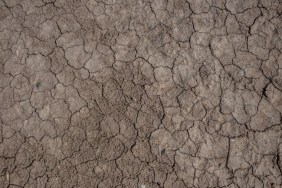
Should you stay or should you go? The same dilemma applies to love as it does in fishing. Getting skunked on the water is no fun. No one likes to spend a day on the water with nothing to show for it, but sooner or later, it happens to even the best of us.
It can be hard to tear yourself away from your favorite spot, even when it’s not producing, but there are a few factors to consider when it comes time to make that decision.
When to Stay
Try to recall what the conditions were like the last time you were fishing your spot and if they’re the same, it’s a good idea to stick around a little longer. I’d also stick around if there are baitfish present, if any gamefish like bass or pike are feeding nearby, or if you’re getting nibbles and bites now and then, even without full-on hook-ups.
Also, since most anglers start with quick baits that seek out fish—spinnerbaits and crankbaits—it’s smart to stay put until you’ve had time to work the area with slower finesse baits, like a jig or a Texas-rigged worm. Finally, if you know there’s a big fish in the area, or if you’re fishing a tournament and need a solid fish, it might be worth it to go over the spot one more time with a fine-tooth comb, or, bait.
When to Leave
Of course, while there are reasons to stay on a spot, there are also perfectly good reasons to move on. For instance, if conditions have changed dramatically from when you first found the spot, fish behavior may have done the same, leading to little or no activity. In these cases, it’s time to leave. While the presence of bait and gamefish is a sign to stick around, their absence is also a clear sign that it’s time to leave. If you’ve thrown every lure in your tackle box with no success, then there’s nothing wrong with calling it a day. Finally—and this is sort of a no-brainer—but if you’re using a fish finder and it’s not marking any fish, obviously you should move along.
There’s a fine line between spending too much time on one unproductive spot and catching zero fish on a given day, though, and that line involves knowing when to stay and when to move on. Keep these helpful tips in mind the next time you’re having a less than productive day on the water; they might mean the difference between a fish dinner and a stop at McDonald’s.








